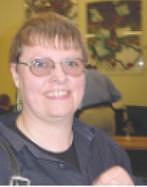Research for Writers | Reviews
Writers Bookstall
A & C BlackClick for A & C Black Publishers Publishers References listing (7th edition) 268 pages (Paperback)
updated review of 7th edition
|
'Research can be a dangerous business: not all sources are reliable and it can be difficult to be certain that you’ve found an accurate answer.'
'an excellent starting point for anyone needing to carry out research and at a loss to know where to begin.
'shows how researching online has made a great difference to how writers can carry out their research.'
'The seventh edition confirms the supremacy of Research for Writers. It is an excellent tool for all writers who need to research in any field.' |
Sooner or later, every writer needs to do research of some sort, from simple fact checking to more complex investigations of settings or events. But how to get the best results? Sometimes, a quick browse on the Internet will supply the answer, but if your research requirements are more complicated, how do you set about finding the information you need? Research can be a dangerous business: not all sources are reliable and it can be difficult to be certain that you’ve found an accurate answer. How can you be certain that you’ve done the best job you can? Ann Hoffmann’s Research for Writers, now in its 6th edition, sets out to help the novice researcher with the typical problems that arise, and to introduce the basic tools of the research trade. Hoffmann believes that research is an individual, creative and selective process, more so once you step beyond the basics of factual checking. For a novelist, discovering a fact and then checking it can lead to a new discovery that reshapes their novel entirely, while an academic researcher may be looking for facts to confirm or deny a long-held belief. But all researchers should go about their business in an organised and methodical fashion, be they working in the library or else assembling materials at home, and Hoffmann is old-fashioned enough to believe in making extensive preparations before embarking on research: her lists cover everything, from what you might need while working in the library to the best kinds of filing system. Which may seem to some, probably those who are already well organized, to be stating the obvious but is nevertheless valuable information for those who have never embarked on sustained research before and are really not quite sure where to begin. As indeed is the advice on methods of research, from note-taking to basic interviewing techniques. Where this book really begins to come into its own is with the dazzling survey of basic sources of information. To simply talk about ‘the library’ is to be totally unaware of the many resources available, even through your local branch library. Beyond that, however, are the many specialist libraries which also grant access to the bona fide researcher, and the startling number of specialist publications which help researchers to trace information. For those researchers who have a clearer idea of what they need, be they novelists, genealogists or historians, individual chapters cover the available resources in even greater depth. Hoffmann supplies lists of books and lists of useful addresses, enough to satisfy even the most discerning researcher. Samuel Johnson observed that: ‘Knowledge is of two kinds. We know a subject ourselves, or we know where we can find information upon it.’ This book is surely an excellent starting point for anyone needing to carry out research and at a loss to know where to begin. Reviewed by Maureen Kincaid Speller Review of 7th editionThis excellent handbook has now gone into its seventh edition. All the contents have been brought up to date and there is also a new chapter on making best use of the Internet. This is based on the author’s assumption that since the last edition in 1999 most readers will have got themselves onto the Internet. Ann Hoffman still feels that ‘you are bound to continue to do the bulk of your research in the library and the archive centre’, but acknowledges the importance and usefulness of web-based research. The Internet section includes the basics of getting online, emphasises the importance of keeping careful records when using the Internet, and shows how researching online has made a great difference to how writers can carry out their research. The author’s main focus is still on getting readers ‘to treat this book as a working tool, to annotate it profusely, and to update it as their research requires.’ Her chapters, each with its excellent list of titles at the end, are as good as ever. Her very thorough approach takes the reader through: Basic Sources of Information, Factual and Historical Research, Research for Fiction Writers and Dramatists, Biography and Autobiography, Family and Local History, Specialist Research, Information about Foreign Countries and Preparing for the Press. The seventh edition confirms the supremacy of Research for Writers. It is an excellent tool for all writers who need to research in any field. Review of 7th edition by Chris HolifieldManaging director of WritersServices; spent working life in publishing,employed by everything from global corporations to start-ups; track record includes: editorial director of Sphere Books, publishing director of The Bodley Head, publishing director for start-up of upmarket book club, The Softback Preview, editorial director of Britain’s biggest book club group, BCA, and, most recently, deputy MD and publisher of Cassell & Co. She is also currently the Director of the Poetry Book Society; During all of this time aware of problems faced by writers, as publishing changed from idiosyncratic cottage industry, 'occupation for gentlemen', into corporate business of today. Writers encountered increasing difficulty in getting books edited or published. Authors create the books which are the raw material for the whole business. She believes it is time to bring them back to centre stage.
|
|
|
© Maureen Kincaid Speller 2001© Chris Holifield 2003 |


 a
a